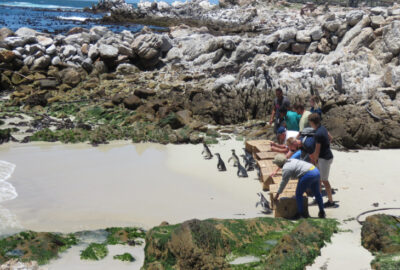Cada Solución, Cuenta: Knowledge Sharing Between Fishing Communities Can Strengthen Climate Resilience
By New England Aquarium on Friday, February 03, 2023

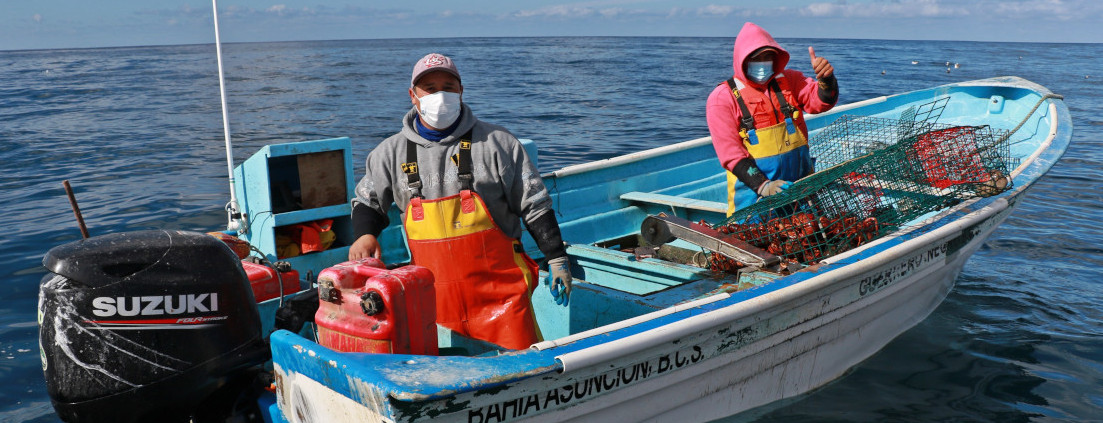
This post is one of a series on projects supported by the New England Aquarium’s Marine Conservation Action Fund (MCAF). Through MCAF, the Aquarium supports researchers, conservationists, and grassroots organizations around the world as they work to address the most challenging problems facing the ocean.
MCAF grantee Niza Contreras Liedtke is a dual U.S.-Mexican citizen who was born and raised in San Francisco, California, U.S. Her family has roots in Ciudad de México, México, and in the Mexican state of Oaxaca. Niza graduated from Stanford University in 2020 with a Bachelor of Science in Earth Systems with a concentration in Oceans, Atmosphere, and Climate. She is currently enrolled in the Coastal Science and Policy (CSP) Master of Science program at the University of California, Santa Cruz, and she is a 2022 SOA/EDF Leadership for Climate-Resilient Fisheries fellow. Through her current work, Niza hopes to promote community-based solutions, knowledge diversity, and decolonial methods of fisheries management and marine stewardship.
Lee este blog en español aquí.
By Niza Contreras Liedtke
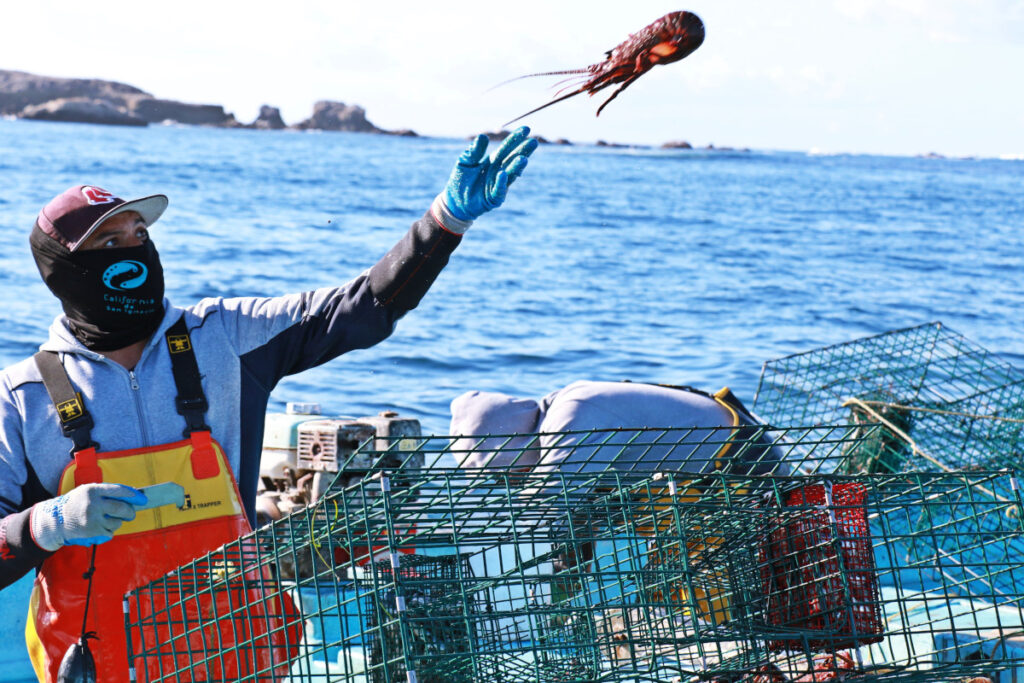
“What does success mean to you?” A big question, but my interviewees had no difficulty answering it.
“First, before anything, that the resource is conserved, and that we are able to extract less product of better quality.”
This response came from the Director of the fishing organization SCPP Ensenada SRL from El Rosario, Baja California, México. He is a third-generation fisher, just like the rest of my interviewees, following in his father and grandfather’s footsteps.
He continued: “We are the users of the resource, not the owners of the resource. We have a double obligation. One, to conserve the resource because, well, it’s the future of our families and of the community.”
The Director from a neighboring organization in Isla Natividad—SCPP Buzos y Pescadores de la Baja California SCL—expressed the second obligation perfectly: “The social objective of the cooperative is to create the necessary conditions so that the members of the organization and their families can satisfy their economic, social, and cultural needs.”
These responses reaffirmed what I had already been learning from months of researching Mexican small-scale fisheries. For many of these communities who are dependent on fishing, life isn’t just about how many fish (or lobster or abalone) they can extract, but rather a continual balance between the environmental and the social systems. As leaders and members of fishing cooperatives, the men I interviewed feel responsible for protecting their marine resources, just as they are responsible for taking care of their families and their community.
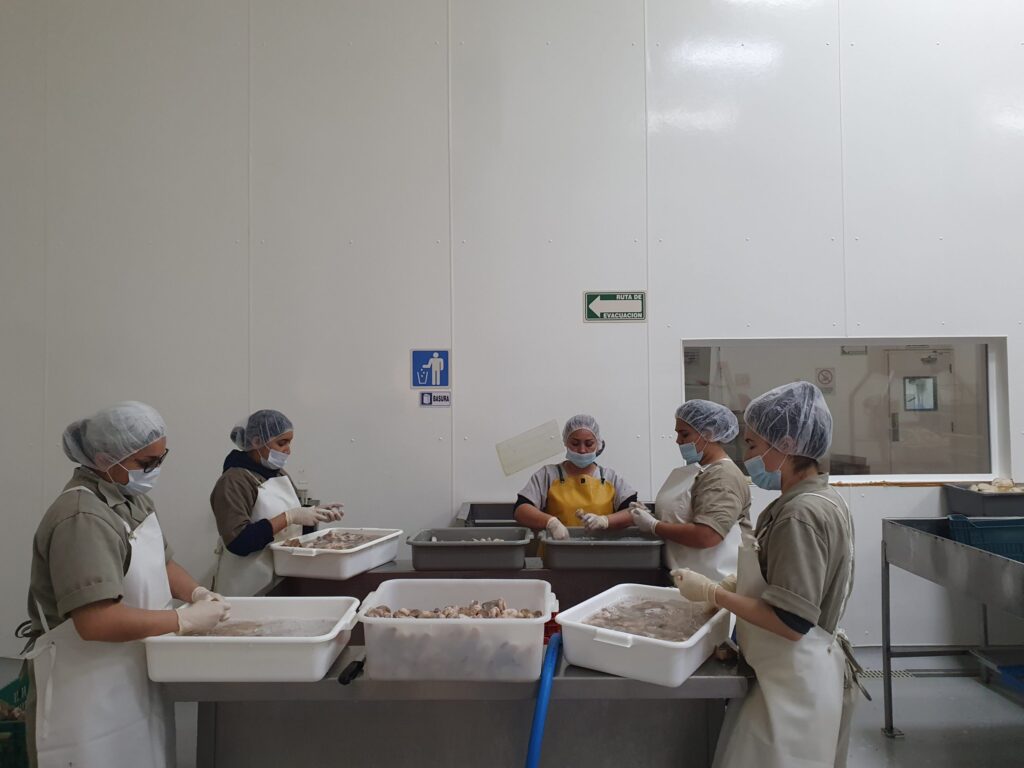
But maintaining this balance—which has always been challenging in the face of numerous social, economic, and environmental complications—is becoming harder and harder in the era of climate change. Unprecedented environmental phenomena and changing climatic patterns are forcing small-scale fishers to question the stability of their livelihoods. What will happen to my job if the lobsters don’t recover? How will I support my family if the next El Niño wipes out the abalone population?
Luckily, solutions to the threats posed by climate change can be found within many of the small-scale fishing communities in México. Whether it is implementing long-term marine reserves, establishing community savings funds, or altering the mesh size on a trap to decrease the capture of juvenile crabs, fishing communities and cooperatives across the country are executing strategies to adapt to their changing conditions.
The Mexican organization Comunidad y Biodiversidad, or COBI, has made it part of their mission to bolster this type of community-based problem-solving. Beyond that, they are seeking to help communities who are lacking appropriate solutions by making the strategies of fisher folk from around the country easily available. They have started this process using their app PescaData, which—among other useful functions for fishers—provides an open-access platform for documenting and sharing solutions.
Community knowledge sharing is a powerful tool because it can help communities in need of solutions identify what specific strategies might work for them based on what has worked for others. Through my current project with COBI, we’re hoping to take knowledge sharing to the next level by not just presenting the what, where, and why of each solution, but also identifying the characteristics of that solution and its socio-ecological context that enabled the community to implement it successfully. In other words, what key elements—social, economic, or environmental—would another community need to put this solution into action and adapt it to their local context?
Over 110 solutions have already been shared on PescaData by individuals and fishing cooperatives all over México. As part of our analysis, I have been assessing each of these solutions through the adaptive capacity framework developed by Josh Cinner et al. (2018). Adaptive capacity refers to the ability of a social or environmental system to anticipate and react to change, handle the consequences of that change, and come out the other end in the same, if not a better, state as before. We are also using an adapted version of a list of attributes of climate resilience developed by Julia Mason et al. (2021) to link Cinner’s framework to concrete examples of resilience within fisheries systems. By associating these attributes with each solution, we can begin to better understand which specific elements of adaptive capacity are prominent, and why.
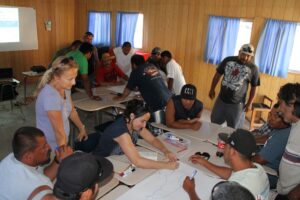
While this method of analyzing documented solutions is interesting and potentially very useful, it is really important that any results be “ground-truthed” by fishing community members. At the end of the day, our results aren’t worth much if they don’t reflect the realities of the people we’re hoping will benefit from them. That is why we’re planning on conducting individual and group interviews within fishing communities to get feedback on our findings and to help shape our next steps.
Now, never in a million years would I have imagined that I would be conducting interviews. Being a social scientist was never part of my plan—until I realized that effective resource management and conservation should consider a wide range of disciplines and knowledge systems. That’s how I found myself carrying out my first one-on-one interviews with leaders of fishing cooperatives in July of 2022. Specifically, I was able to connect with three cooperatives that have been long-time partners of COBI on the Pacific coast of the Baja California Peninsula: SCPP Ensenada SRL (El Rosario), SCPP Buzos y Pescadores de la Baja California SCL (Isla Natividad), and SCPP California de San Ignacio (Bahía Asunción)
It was a great experience, if a little intimidating at first. With just three conversations, I learned as much about the small-scale fisheries of the Baja California Peninsula as I had from hours of reading scientific papers. I got to hear these experienced fishers talk about the amazing solutions I had been looking at in my dataset, as well as plans for future developments they hope to implement in their communities. I was also able to ask them the question at the heart of my project: what characteristics of your cooperative, community, ecosystem, or economy do you think facilitated or hindered your ability to implement these solutions?
The answers, though not breaking news, were telling, nonetheless. These three fishing cooperatives all have no-take zones, and a huge barrier that they all encountered when trying to implement these management strategies was resistance from fishers in their communities who were not thrilled at the idea of restricting fishing or working with outsiders (such as COBI) to make changes to their fishing traditions. What helped overcome the pushback? In some cases, it was the fact that abalone (a highly lucrative fishery) had reached such a low population that harvesting it was no longer an option. Across the board, though, fishers were convinced by the evidence that these methods were effective, particularly if neighboring cooperatives had worked with COBI or academic institutions to establish no-take zones and were now seeing results. In other words, knowledge sharing from other communities was key in helping overcome resistance to change.
When it comes to organized fishing cooperatives, like those that COBI partners with, many of their decisions are tied to their definitions of success and the value they place on cooperativism, the underlying principle of this system of fisheries management. Cooperativism means working together to benefit all, which in turn means protecting that balance between a healthy ecosystem and a healthy community. As I learn more about community-based solutions and get to know leaders from the communities, I can appreciate a fisher’s potential to dictate the sustainability of a fishery and the well-being of their community more than ever. It is easy to overlook one fisher, or even ten, but by bringing together the small-scale fishing communities of México, amplifying their voices and their knowledge, and showcasing their successes, we hope to further empower communities to determine how they will respond to an ever-changing marine environment.
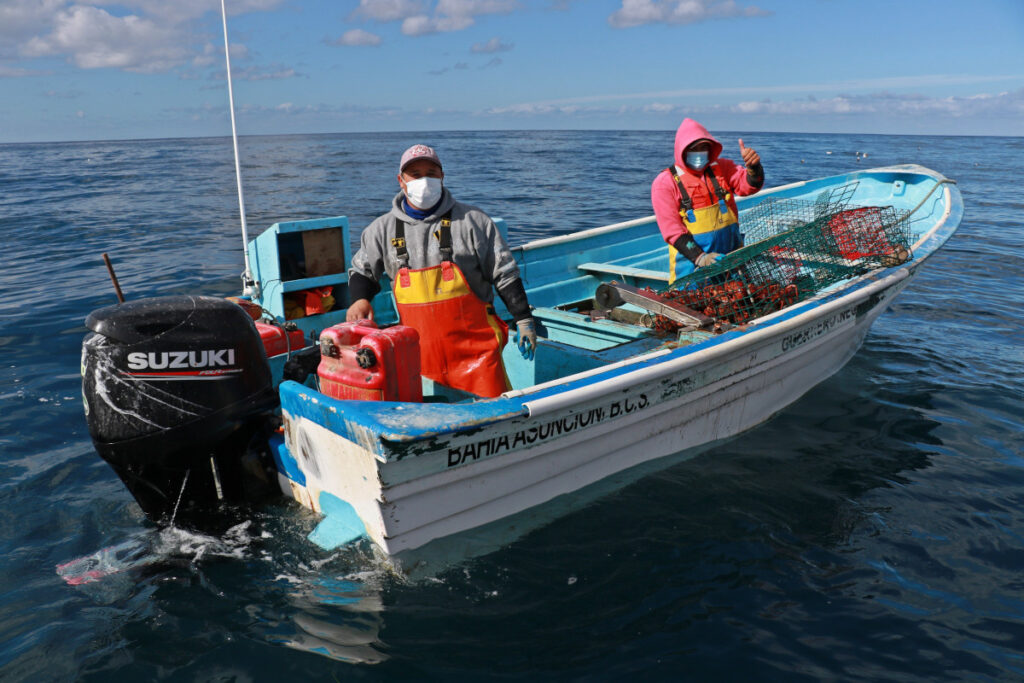
This project would not be possible without the mentorship of my co-advisors in the Coastal Science and Policy master’s program at UC Santa Cruz, Elena Finkbeiner and Mark Carr, and my mentors from COBI, Jorge Torre Cosio, Magdalena Précoma, and Arturo Hernández Velasco. I also appreciate the financial support of the New England Aquarium through the Marine Conservation Action Fund, the UCSC Fisheries Collaborative Program through the Fisheries Opportunity Fund, and Sustainable Ocean Alliance and the Environmental Defense Fund through the Leadership for Climate-Resilient Fisheries fellowship program. And of course, thank you to Anne Kapuscinski, Sarah Eminhizer, and my courageous CSP cohort.


